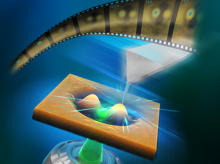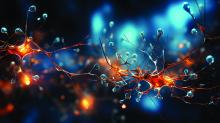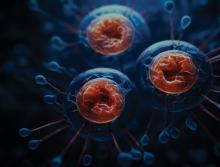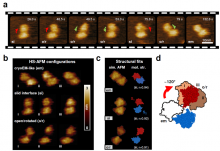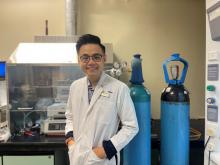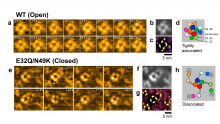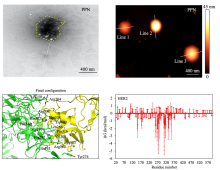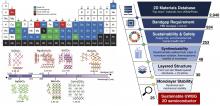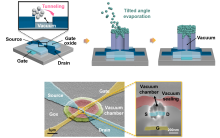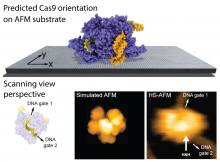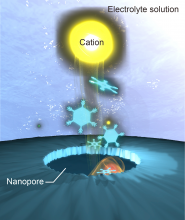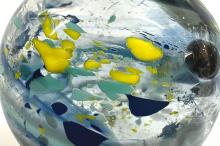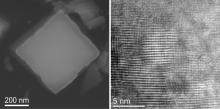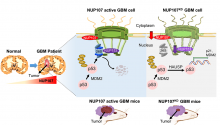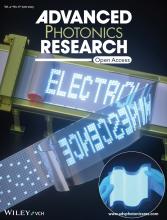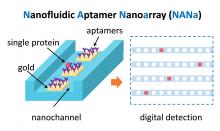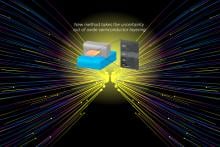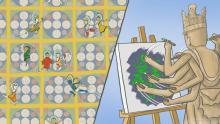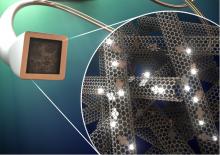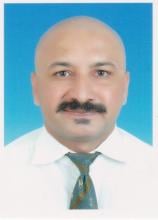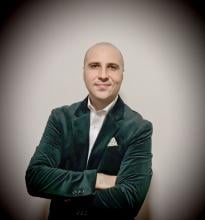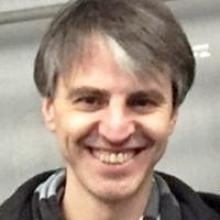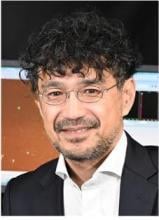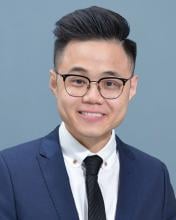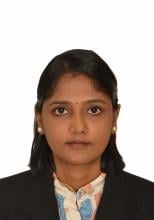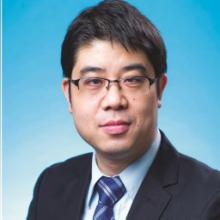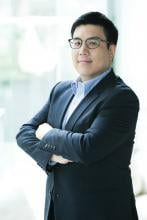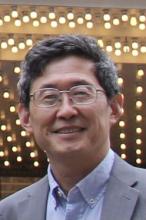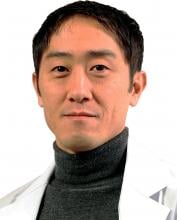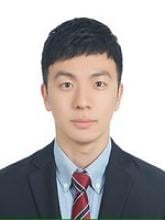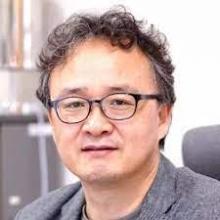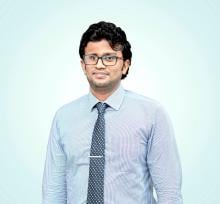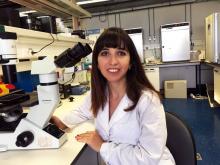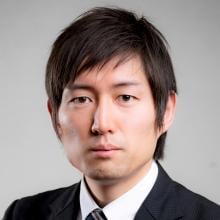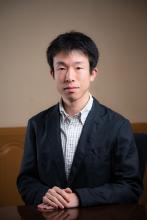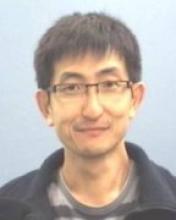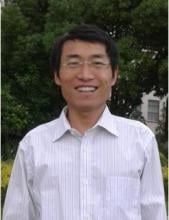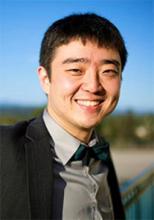Nanotech
News
11 Mar 2024
Researchers from Osaka University used tip-scan high-speed atomic force microscopy combined with an optical microscope to observe light-induced deformation of azo-polymer films. The process could be followed in real time, and the film patterns were found to change with the polarization of the light source. The observations will contribute to the use of azo-polymers in applications such as optical data storage, and the approach is expected to be useful across materials science and physical chemistry.
26 Feb 2024
Magnetic nanorobots delivering nerve cells to targeted tissues could potentially be used to repair damaged brain tissue, as well as other organs.
23 Feb 2024
A new technique allows researchers to map how the cellular “skeleton” adapts to external stress.
22 Feb 2024
Researchers from Nano Life Science Institute (WPI-NanoLSI), Kanazawa University report in Nature Communications that TMEM16F, a transmembrane protein that facilitates the passive movement of phospholipids and ions across membranes, explores a larger conformational landscape than previously thought to perform its unique functions. The finding refines our molecular understanding of crucial physiological processes such as blood coagulation and COVID-19 pathogenesis, and highlights the importance of probing membrane proteins in native-like environments.
15 Jan 2024
Research by Assistant Professor Edison Ang Huixiang and his team from National Institute of Education/Nanyang Technological University Singapore
20 Dec 2023
Researchers at Nano Life Science Institute (WPI-NanoLSI), Kanazawa University report in Nature Communications a high-speed atomic force microscopy study of the structural dynamics of sodium ion channels in cell membranes. The findings provide insights into the mechanism behind the generation of cell-membrane action potentials.
19 Dec 2023
SUTD researchers developed an advanced system of breast cancer cell detection with improved speed and sensitivity, using a viral mechanism to enhance the tool’s sensing accuracy.
15 Dec 2023
Riding the momentum of the environment-aware agenda, SUTD researchers were part of an international collaboration that developed a sustainable approach to discover and identify materials for next-generation electronics.
08 Dec 2023
- Doctor Heo Su-jin and Professor Jang Jae-eun’s research team from DGIST developed an ultra-small nano vacuum tube transistor that stably operates in atmospheric pressure without being affected by extreme environments.
08 Dec 2023
Researchers at Kanazawa University report in Frontiers in Molecular Biosciences a computational method to predict the placement of proteins on AFM substrates based on electrostatic interactions.
08 Dec 2023
Researchers from Osaka University investigated the thermal energy changes across nanopores that allow the selective flow of ions. Switching off the flow of ions in one direction led to a cooling effect. The findings have applications in nanofluidic devices and provide insight into the factors governing ion channels in cells. The nanopore material could be tailored to tune the cooling and arrays could be produced to scale up the effect.
16 Oct 2023
The shortlist for the Applied Microbiology International Awards 2023 has now been announced.
The AMI Awards programme is designed to celebrate the brightest minds in our field and promote the research, group, projects, products and individuals who continue to help shape the future of applied microbiology.
29 Sep 2023
Researchers at Osaka Metropolitan University have succeeded in printing uniformly sized droplets with a diameter of approximately 100 µm using a liquid film of fluorescent ink. This ink, with a viscosity roughly 100 times that of water, was irradiated with an optical vortex, resulting in prints of exceptional positional accuracy at the micrometer scale.
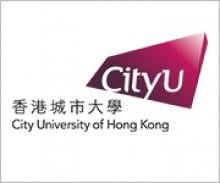
14 Sep 2023
A research team led by City University of Hong Kong (CityU) has achieved a groundbreaking advancement in nanomaterials by successfully developing a highly efficient electrocatalyst which can enhance the generation of hydrogen significantly through electrochemical water splitting.
13 Sep 2023
Systematic copper doping boosts all-solar utilization in tungstic acid nanocrystals.
01 Sep 2023
Researchers at Kanazawa University report in Cell Reports how alterations in the nuclear pores lead to the degradation of anti-tumor proteins.
21 Aug 2023
Deepak Verma from Chulalongkorn University and his international team of researchers are exploring ways to enhance chitosan using techniques like adding photosensitizers, dendrimers, and chemical modifications. They also surveyed the use of chitosan nanoparticles for medical purposes, notably wound dressings.
06 Aug 2023
A team of researchers from Singapore and the UK, led by Dr Wei Liang Lai, with supervisor, Associate Professor Kheng Lim Goh, has developed a portable device for repairing hard-to-see damage in carbon fiber materials. The device has great potential for the aerospace industry, such as to repair the fuselage of commercial aircraft.
27 Jul 2023
succeeded in preparing atactic C1 polymers with a high melting point of up to 130 ℃ by utilizing a hydrogen-bonding interaction among amide-linkages incorporated into the polymer side-chains.
25 Jul 2023
Illuminating the molecular ballet in living cells, Charting the voyage of marine plastics, A glimpse into the origins of life & Earliest human journeys to Asia. Plus Submissions open for Asia Research News 2024. Read all in the latest Editor's Choice.
07 Jul 2023
Asia Research News monitors the latest research news in Asia. Some highlights that caught our attention this week are a way to avoid biopsies by catching free-floating DNA, a large dip in the Earth’s surface under the Indian Ocean, and how people who brush their teeth before bed seem to have healthier hearts.
04 Jul 2023
- A research team led by Dr. Byeong-dae Choi at the Division of Electronics & Information System, DGIST, greatly improved the efficiency of electroluminescent devices by applying silver nanofilms.
- This opens up the possibility of developing affordable digital film signage.
23 Jun 2023
An international team led by Professor Yan Xu from Osaka Metropolitan University has developed a groundbreaking nanofluidic device, named NANa, capable of stochastically capturing and digitally detecting individual proteins at cellular concentrations. This tool, vital for precision medicine, is designed to handle tiny volumes equivalent to a single cell's contents and can identify single biomolecules even in high-concentration environments. The team plans to conduct further demonstrations using actual cell samples and explore the integration of this tool with AI and biological big data. This research could potentially revolutionize personalized disease prevention and treatment.
22 Jun 2023
Researchers from SANKEN (The Institute of Scientific and Industrial Research), at Osaka University demonstrated a method for drying cellulose nanofiber (CNF) that retains the unique properties of the thickening agent. High transparency, high viscosity, and controllable viscosity were restored with simple stirring after the CNF was dehydrated from an organogel. Our powder had a much smaller volume than freeze-dried CNF, which will facilitate more efficient transport and storage. The method is expected to have a significant impact on food and cosmetics manufacturing.
09 Jun 2023
Researchers from Institute of Industrial Science, The University of Tokyo develop a nanosheet oxide semiconductor for electronic devices
08 Jun 2023
Researchers at Kanazawa University report in ACS Nano how ultrathin layers of tin disulfide can be used to accelerate the chemical reduction of carbon dioxide — a finding that is highly relevant for our quest towards a carbon-neutral society.
07 Jun 2023
Scientists from Thailand, France and Singapore have conducted groundbreaking research using both tiny cellulose nanofibers (CNF) and long pineapple leaf fibers (PALF) to create stronger materials. They added varying amounts of CNF to epoxy and found that 1% CNF greatly increased impact strength. PALF-epoxy composites showed significant flexibility and strength improvements. Combining CNF and PALF resulted in a remarkable increase in impact strength. The findings could revolutionize stronger material development.
06 Jun 2023
Ultrafast fluorescent imaging technology brings the molecular dynamics of living cells into clear view.
17 May 2023
To improve the therapeutic techniques to treat those with brain disorders, researchers have developed microscopic, thermally-drawn microelectronic fiber-based neural probes as a means to manipulate both electrical and chemical signals in the brain. Now, a researcher from Tohoku University’s Frontier Research Institute for Interdisciplinary Sciences has led a group that increased the functionality of these fibers by equipping them with neurochemical sensing aptamers.
Events
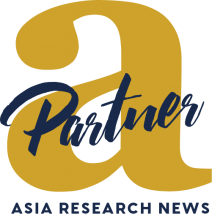
07 Aug 2024
The MTE 2024: Advanced Healthcare and Life Sciences International Innovation Awards & Expo (AHLS IIAE) is dedicated to recognizing and celebrating groundbreaking innovations in the healthcare industry.
26 Jan 2022
Since 2001, the "nano tech" exhibition is one of largest exhibition in the world held in Tokyo, Japan. In 2022, it will be held in On-site and On-line format as a Hybrid event.
09 Dec 2020
The 20th International Nanotechnology Exhibition & Conference will be held in onsite-online hybrid format.
The Khwarizmi International Award (KIA) acknowledges the efforts made by researchers, innovators and inventors from across the globe and to appreciate their high quality research work and contributions to different fields of science and technology.
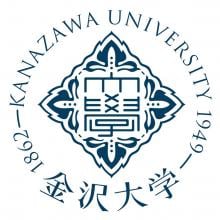
17 Aug 2020
The Nano Life Science Institute (WPI-NanoLSI), Kanazawa University, is calling for participants for 9th Bio-SPM Summer School (previously known as Bio-AFM Summer School)).
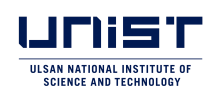
South Korea's Ulsan National Institute of Science and Technology (UNIST), jointly with Ulsan Metropolitan City, held the "Graphene Symposium in Ulsan" on Wednesday, May 8, 2019.
Researchers
Ts. Uganeeswary Suparmaniam, AMIChemE (UK) is a multiple award-winning young scientist, sustainability advocate, and climate activist attached to the HICoE-Centre for Biofuel and Biochemical Research, Institute of Self-Sustainable Building, PETRONAS University of Technology, Malaysia.
Dr. Chong Li Choo is an accomplished academic, Associate Professor at Taylor's University, expert in food technology, and innovative product design. Award-winning researcher, director for Food Security & Nutrition Impact Lab, and impactful leader in the field.
Mahidol University
Taweechai Amornsakchai is an Associate Professor at Mahidol University. With a Ph.D. in Polymer Physics, his research focuses on reinforcing plastics with pineapple leaf fiber and exploring pineapple stem starch for biodegradable packaging.
Sarfraz Ahmed is working as a Scientist at Harvard Medical School's Mass General Hospital. His research interests include Diseases and Therapeutics especially focus on Cancer and Therapeutics, Cancer Immunology, Photomedicine, Photo compounds and Photodevices for Cancer, Cancer and Natural agents, Nanomedicine and Nanotechnology for Cancer, Drugs resistance, Microbiology (Bacteriology & Virology) and Drugs resistance
Angel Investor and a Vision-driven entrepreneur/executive with career-long record of business growth and innovation.
Dr Fabien Grasset is a Research Director at the Centre national de la recherche scientifique (CNRS) and currently serving as Director of Research for Rennes Institute of Chemical Sciences (ISCR). His areas of expertise include materials chemistry, solid-state chemistry, nanotechnology, nanoparticles, optical coatings and thin films.
Institute for the Advanced Study of Human Biology (ASHBi), Kyoto University
Dr Ashfaq Ahmad Shah 'اشفاک ' born on 6 June 1992, from south Kashmir, Doderkoot ددیرکوٹ Kulgam, Jammu and Kashmir, India is the infection immunity doctoral researcher at the Graphic Era (Deemed to be University), Dehradun, UK, India. Dr Shah is pursuing novel dimensions of infection immunity pertaining to the correlation and impact of phyto-immune components termed phytoalexins and phytoanticipins on the benign immune system of human beings. This parameter of immunology is termed phytoalexin-immunomodulation scrutiny. His area of interest lies in Preclinical and clinical studies, i.e. vaccine adjuvant development, development of anti-inflammatory and antimicrobial compounds, evaluation of antibiotic resistance, study of Immuno-modulatory activities, disease model studies, protease isolation against specific protein antigens, and the discipline of Kalology including tyrosinase inhibition, PPO inhibition, skin whitening agents, kerato-peeling etc. Dr Ashfaq is a Doctoral Researcher, Reviewer and Editorial member of several journals and books. He is having several publications in journals of national and international repute. So far he has published more than thirty scopus infection/immunology/pharmacology scientific papers, including Fifteen international book chapters and two international books. Mr Shah received the Young scientist award in August 2023 for his groundbreaking academic performance in the field of infection immunity. Mr Shah has also been an editor of Wikipedia pages in medical science since 2015 with more than 1000 edits in medical topics available to medical literature worldwide.
Hokkaido University
Dr. Akira Kakugo is an Associate Professor at Hokkaido University. He has researched biomolecular motors and swarming of active matters.
Nanyang Technological University
Dr. Edison H. Ang has a background in materials science and engineering along with a diverse skill set. He completed his undergraduate studies, earning B.S. degrees, at Nanyang Technological University in Singapore in 2012. Later, in 2017, Dr. Ang received his Ph.D. from the same university. He gained additional experience as a Postdoctoral Fellow at the National University of Singapore from 2016 to 2017 and later served as a Research Fellow at Nanyang Technological University from 2017 to 2019. In mid-2018, he also took on a Visiting Scholar role at the Technical University of Munich in Germany.
Currently, Dr. Edison H. Ang serves as an Assistant Professor at the National Institute of Education/Nanyang Technological University.
His expertise encompasses various areas, including 2D Nanomaterials and Nanotechnology, Energy Storage and Conversion, Sensor Technology, Membrane Technology, Additive Manufacturing, Catalysis, Waste-to-Wealth, Surface Coating and Film, Circular Economy, Renewable Energy, Sustainability, and Chemistry and Chemical Engineering.
Senior lecturer at Universiti Tun Hussein Onn Malaysia and actively involve in research and innovation. Participated in many innovation competition and won accreditation nationally and internationally. Received title Inv. from IFIA for innovators.
City University of Hong Kong (CityU)
Prof Yang obtained his bachelor degree from Peking University in 2001, and PhD from Princeton University in 2007. His research interest includes the development of advanced alloys, including metallic glasses, high entropy alloys, low dimensional metals/ceramics and metamaterials.
Daegu Gyeongbuk Institute of Science and Technology (DGIST)
Hoe Joon Kim is currently an Associate Professor in the Department of Robotics & Machatronics Engineering at Daegu Gyeongbuk Institute of Science & Technology (DGIST)
City University of Hong Kong (CityU)
Professor Ren Yang is a physicist and Chair Professor at the Department of Physics at City University of Hong Kong. His research interests focus on the structure-property relationship studies of materials by utilizing synchrotron X-ray and neutron scattering and other techniques.
Professor Shinya Maenosono leads his research group at Japan Advanced Institute of Science and Technology (JAIST). His research in JAIST has focused on two main areas of interest in the field of materials chemistry and nanotechnology. The first area involved wet chemical synthesis of semiconductor nanoparticles with controlled size, shape and composition for energy conversion device applications. The second area has focused on the synthesis and bioapplication development of monometallic and alloyed multimetallic nanoparticles.
Singapore University of Technology and Design
Robert E Simpson is an Associate Professor at the Singapore University of Technology and Design (SUTD). Rob’s research interests are focused on designing new materials for applications in electronics, photonics, data storage, and biosensing.
Daegu Gyeongbuk Institute of Science and Technology (DGIST)
Dr. Sungwoong Jeon's research interests are biomedical micro/nano robot, animal in vivo experiments and MEMS piezoelectric artificial basilar membrane.
Lecturer in Forensic Chemistry field. Actively engaging in agricultural waste upcycling into nanatechnology products.
Nagoya University
Prof Pu Jiang is currently an Assistant Professor at the Graduate School of Engineering Applied Physics 1, Nagoya University
Daegu Gyeongbuk Institute of Science and Technology (DGIST)
Professor Jong- Soo Lee's research interest is in designing a new type of multifunctional nanoparticles for energy related devices.
Prasanna Lakmal is a lecturer at the Department for Commerce & Financial Management of the University of Kelaniya, Sri Lanka.
Institute for Integrated Cell-Material Sciences (iCeMS) at Kyoto University
Prof. Ganesh Pandian Namasivayam's research goal is to create "Smart Genetic Switches" that precisely ON and OFF the genetic and epigenetic factor(s) of interest.
Ana Carina Manjua's current PhD work is in the design and fabrication of a biological inspired artificial microfluid platform for drug screening.
Dr. Eng. Hafsa Jamshaid C Text FTI is working as Associate Professor at National Textile University. She is an experienced textile professional in the field of weaving, knitting technologies for technical fabrics and composites.
National Institute for Materials Science (NIMS)
Ken-ichi Uchida is a group leader in the Spin Caloritronics Group, Research Center for Magnetic and Spintronic Materials under the National Institute for Materials Science (NIMS), Japan
National Institute for Materials Science (NIMS)
Satoshi Ishii is a principal researcher at International Center for Materials Nanoarchitectonics (MANA), National Institute for Materials Science (NIMS), Japan. He also holds an adjunct associate professorship at University of Tsukuba.
Universiti Malaysia Sabah
Dr. Connie Cassy Ompok is an early childhood education expert and a Senior Lecturer at the Faculty of Psychology and Education, Universiti Malaysia Sabah. She Started her career in Early Childhood Education as a preschool teacher (2004-2007), a lecturer in early childhood education at the Malaysian Institute of Teacher Education (2008-2016) before serving as a Senior Lecturer in Early Childhood Education at UMS (2016 until now).
Universiti Teknologi MARA (UiTM)
Senior lecturer at School of Chemical Engineering, Universiti Teknologi MARA, Cawangan Pulau Pinang, Malaysia. He is also Head of Lab EMZI-UiTM Nanoparticles Colloids
Newcastle University in Singapore
I am the Director of Research and Associate Professor (Reader in Mechanics of Composite Materials) at the Newcastle University in Singapore.
Fei Zhuge is a professor at Ningbo Institute of Materials Technology and Engineering (NIMTE), Chinese Academy of Sciences (CAS).
Earth-Life Science Institute (ELSI), Tokyo Institute of Technology
Tony Z. Jia is a researcher at Japan’s Earth-Life Science Institute (ELSI), based at the Tokyo Institute of Technology. His research focuses on astrobiology, prebiotic chemistry, and origins of life.
Giants in history
Sorry, no researchers coming up for this topic.



